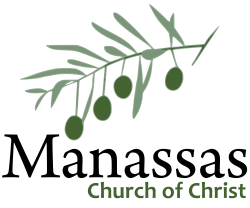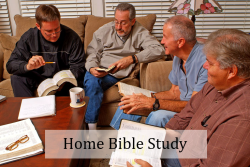On November 21, 1931, the passing of Zeke Marks was noted in the Weirton (WV) Daily Times. He was 75 years old, and a father of 9. Described as a “short man with a drooping moustache,” Marks is reported to have died of bronchial pneumonia. His obituary would ordinarily have appeared in the back section of the newspaper, but it was a feature story on the front page because Zeke Marks was King of the Gypsies.
Today, we use the more precise word Roma, or Romani, as “gypsy” is considered hurtful. But in his own day, Zeke Mark was known as the “Gypsy King.” More than 10,000 Roma flooded Weirton, WV for his funeral observance. They came from all over the United States, and a small West Virginia town which knew little of Romani culture got a rare glimpse inside their closely held traditions.
According to the Daily Times, Zeke’s mouth was tied with a red bandana – lest he rise from the dead and reveal the secrets of the underworld. His hands and feet were bound lest he wander away. In one hand he clutched a $5 gold coin – his fee for safe passage across the river Styx. Under the other arm was a jug of wine from which mourners swigged as they passed his casket.
All his earthly possessions were placed at the foot of the bronze casket, into which Zeke Marks was placed un-embalmed. Prominently displayed atop his possessions were the bills for the funeral, cemetery plot, monument, and suit of clothes – all marked “Paid.” According to mourners, this was to show that Zeke Marks “left the world a square man.” *
We do not scruple at debt the way past generations have. I remember the old folks saying, “owe no man a dollar, ask no man a dollar.” My grandparents’ generation was uncomfortable with any kind of debt. Now everyone from teens with their first job to the Federal Government gladly runs up deficits.
Doubtlessly, individuals and nation states would enjoy more, and longer lasting prosperity if they borrowed less and saved more. Usury (loaning money on interest) is forbidden in the Law of Moses (Leviticus25.36). But even if our financial house is in impeccable order, and all our bills can be displayed on our coffins marked “paid,” none of us, on our own, leaves this world a “square” man or woman.
The wages of sin is death. Romans 6.23a
Each individual sin incurs a debt of death. If I could live my life and sin only once I could, theoretically, die for that sin and square myself with God. But the single-sin life is just that – theoretical. None of us live a single-sin year, or even a single sin day. We thus amass an enormous debt which we are incapable of paying.
Fortunately for us, Jesus pays our debt. Jesus died that we could each leave the world “square.”
The free gift of God is eternal life in Christ Jesus our Lord. Romans 6.23b
Despite all the plans we make for our parting – all we hope to leave those who will survive us - we are, ourselves, powerless to do the one thing which will square us with the Only and Eternal God. Thankfully, Jesus does it for us. In Christ we leave the world square. Comfort is the legacy we may leave behind for our beloved ones (I Thessalonians 4.13-18).
Every week we remind ourselves that Someone else paid our debt. As we celebrate Jesus’ death each Lord’s Day, is not the accounting and tallying of our debt, of our being made “square” the measure of our “correctly discerning the body of Christ,” and “examining ourselves? Will we remain “square” if we neglect the accounting of all we have been forgiven?
In so many passages (I Corinthians 15.8-10, Philippians 3.4-16, I Timothy 1.12-17 for example) Paul expresses how he is personally empowered by the tallying, by remembering Who paid the check. We will be similarly empowered – we will feel loved, and free, and focused if we continually remember how much we owe, and who pays the bill.
- Barry Bryson
*“Death of a Gypsy King,” by Jane Kraina and Mary Zwierschowski in Golden Seal, Winter, 1998.
Over the past couple of weeks, we have seen many protests occurring across the country, some of which unfortunately turned into riots, all triggered by the senseless death of George Floyd in Minneapolis. The pain, frustration, and anger that has given rise to the current Black Lives Matter movement is understandable, but at the same time heartbreaking. We know the pain is felt deeply by some members of our own congregation – it is having a negative impact on all of us, whether we realize it or not. The unfortunate truth is racial prejudice exists, and some of our own members probably have experienced it within the Lord’s church. It’s hard to know how to help, but we must start somewhere, because at Manassas, “the love of Christ compels us” (II Corinthians 5:14).
We may begin by all remembering that we live in a fallen, imperfect world, a fact certainly on display right now. Whatever the nation, whatever the time in history, whatever the form of government, prejudice has been present on this planet. It is, after all, Satan’s turf. We read about prejudice repeatedly in the New Testament. Jesus addressed it. His trip through Samaria and his engagement with the woman at the well in John chapter 4, both of which shocked his disciples, was, in part, a lesson on prejudice. Christians who came out of a Jewish background continually wrestled with prejudice against Christians who were born Gentiles. The apostle Peter himself fought against his own prejudice. It took a vision on a rooftop in Joppa in Acts chapter 10 to convince him to preach to a Gentile, Cornelius. It appeared he understood when he stated, “…I understand God shows no partiality.” But old habits die hard. In Galatians chapter 2, Paul had to confront Peter for his failure to associate with Gentile Christians when in the presence of Jewish Christians. He had been eating with the Gentiles but when the Jews showed up Peter pulled back from the Gentiles fearing the reaction of the Jews. Again, old habits die hard. And Peter’s habit was a bad one. And just like Peter, we bring our personal baggage to our Christian walk and often struggle to overcome it.
Most of us have been raised to be very proud of our nation and for good reason. Yet, in being proud of our country we should not put on blinders that keep us from seeing the facts that surround us. A word that should come to mind is “empathy” – the possessing of a sensitive understanding of someone else’s situation. Without question, the most empathetic person ever to be on planet earth is Jesus. He understands what we go through. He understands our challenges. He understands what we suffer. For the rest of us, we have to work at it. All of us need to work very hard at being more empathetic just like Jesus, even if being so does not come naturally. Our Savior strove to get to know everyone he met and often demonstrated just how much he knew them (again recall the woman at the well). Getting to know another human being better is always to our benefit, and theirs.
At Manassas, we are one of the more diverse bodies in the brotherhood of churches of Christ, and it is a great blessing to have different strengths that come from different parts of the body. Even within the eldership, we find that differing viewpoints are a major source of strength, and though in some instances it takes time to fully understand each other, we believe it is both Christ-like and of great benefit to do so. Our diverse Manassas church family is a shelter in a sea of turmoil, and we should also remember it’s a hospital for those wounded by this world. We are all here to nurture and care for one another and dress the wounds inflicted on us by the world.
But old habits do die hard. Each of us who have grown beyond young childhood probably can remember occasions when we treated another person differently because of his or her race or appearance. Even by pointing out something wonderful or lovely about another person, if it has to do with his or her skin color, it can cause discomfort or pain. And so we must strive to be like Paul in confronting Peter – let us see things from the perspective of others. Let us strive doubly hard to avoid inflicting wounds on one another, even by “well-meaning” compliments. Let us all continue in love for one another, sometimes leave our comfort zone to reach out and humbly strive to understand and depend upon each other more. Let us show patience – especially to those who are hurting or who have been personally affected by racism or any other life challenge. To be like Christ, we collectively and individually must be the salt and light to not only our brothers and sisters in Christ but also to our community. Doing so will make us a stronger and more resilient congregation, as well as a greater tool for God to use for good to this world.
To fulfill that mandate at the Manassas church of Christ, we strive to be like Christ, and this means:
We oppose racism in any form, by shining our light for Christ and rejecting racial discrimination as sinful behavior according to scripture. (Galatians 3:28, Colossians 3:11)
We mourn the senseless deaths and acts of discrimination, hatred, and violence in this world. (Romans 12: 15)
We value and seek out diversity in our congregation. (I Timothy 2:4, I Corinthians 12:14-20)
We strive to be Christ-like by showing love and respect for all brothers and sisters, regardless of their skin color, age, gender or socio-economic status. (Romans 10:12, John 13:35)
We do our best to be God’s instrument for the Kingdom in this world, striving to follow scriptural principles and do what is right, even when it is hard to do so. (Matthew 7:12, II Corinthians 5: 20)
From this point forward, our prayerful request is for all to join us in redoubling our efforts to live these principles. Let’s show by our actions our commitment to serve and love God, by serving and loving each other and our fellow man as Jesus did, supporting those who are struggling (Galatians 6:2). For we know that some people have been especially hurt by racism or other prejudices. It will take more than words to accomplish the changes we desire, but violence and more hatred is not the answer. We can only change when we can hear and understand the hurt of others and respond to that hurt with love. We are available continuously to help everyone navigate the rough waters we all are currently experiencing. If you have been hurt or are hurting, as your elders we want to hear and understand your concerns. Please reach out to us, we want to lead in shining our lights for Christ.
- Your Shepherds




